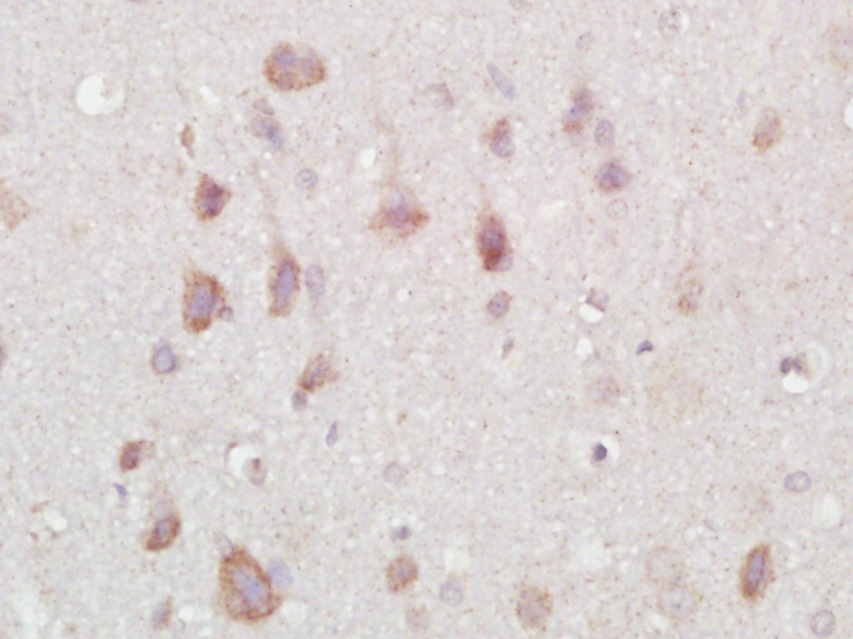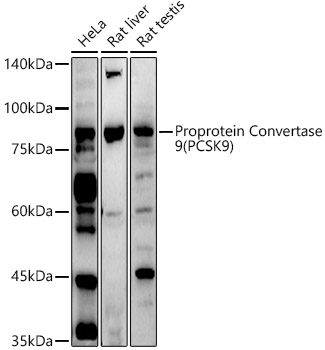Rabbit anti Human Proprotein convertase subtilisin/kexin type 9 (PCSK9), LDLR-binding epitope blocking
X2404P
ApplicationsWestern Blot, ELISA
Product group Antibodies
ReactivityHuman
TargetPCSK9
Overview
- SupplierNordic-MUbio
- Product NameRabbit anti Human Proprotein convertase subtilisin/kexin type 9 (PCSK9), LDLR-binding epitope blocking
- Delivery Days Customer7
- Application Supplier NoteOptimal concentration should be evaluated by serial dilutions.
- ApplicationsWestern Blot, ELISA
- Applications SupplierELISA;Western Blotting;ELISA;Western Blotting
- CertificationResearch Use Only
- ClonalityPolyclonal
- ConjugateUnconjugated
- Gene ID255738
- Target namePCSK9
- Target descriptionproprotein convertase subtilisin/kexin type 9
- Target synonymsFH3, FHCL3, HCHOLA3, LDLCQ1, NARC-1, NARC1, PC9, proprotein convertase subtilisin/kexin type 9, convertase subtilisin/kexin type 9 preproprotein, neural apoptosis regulated convertase 1, subtilisin/kexin-like protease PC9
- HostRabbit
- IsotypeIgG
- Protein IDQ8NBP7
- Protein NameProprotein convertase subtilisin/kexin type 9
- Scientific DescriptionProprotein convertase PC9, Subtilisin/kexin-like protease PC9, Neural apoptosis-regulated convertase 1
- Shelf life instructionSee expiration date on vial
- ReactivityHuman
- Reactivity SupplierHuman
- Reactivity Supplier NoteSynthetic peptide derived from the human PCSK9 protein reported to block PCSK9-LDLR interaction.
- UNSPSC12352203






